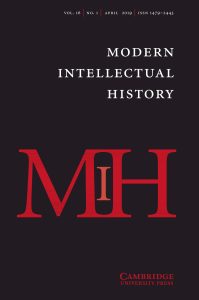The Intuitionist: Where Black Men Tell White Lies and Silence Turns Loud
The human experience, as subjective and relative as it may be, is rooted deeply in two worlds: that which can be seen and physically touched, and that which cannot. As Colson Whitehead tells the story of Lila Mae’s life in the dystopian elevator world of The Intuitionist, he explores the complexities of racism and religion by illuminating the invisible grounds in which they are rooted.
Investigating the Death of the Author in Paul Auster’s City of Glass
The structural critic describes the characters of a novel as nothing more than “the noise of their name” (Gass, 1970, 49), as any fixed aspect of the narrative structure to which the reader will always return as “music returns to its theme” (49). By emphasizing the instability of the structural character, the poststructural Derridean deconstruction seeks to expose a Trace – language’s innate absence and Nothingness – to demonstrate that the end and origin of all literature belongs not to the author and their characters, but to language.
The Sound of Scandal: An analysis of the thematic significance of jazz in Toni Morrison’s Jazz
While many critics of Toni Morrison’s novel Jazz choose to focus on her use of the music form’s distinct structure in the narrative voice, jazz music itself also plays a vital thematic role in the story. By incorporating motifs of jazz into her Harlem-based narrative, Morrison urges readers to draw comparisons between jazz music and the decadent yearnings of her characters, as well as notice the City’s influence over these seemingly personal drives through the intimate connection jazz has to it.
Guilty Women: An Analysis of Angela Carter’s “The Bloody Chamber” Utilizing Laura Mulvey’s Theories of Scopophilia and Female Narrative Roles
She stands alone in a crowded room. Her hair captures the light, framing her face with soft, ethereal radiance. She smiles gently at the people around her, yet remains still, untouched, as though she is waiting for something to happen.
Where did Plato and Galileo search for truth? The inward and outward search for epistemological and metaphysical certainty
Creating a binary between looking inward and outward when thinking about philosophy is obfuscatory, particularly when dealing with the works of Galileo and Plato. Galileo literally gazes at the sun until he is blind, while Plato looks into his mind at a metaphorical sun, revealing the primary distinction between them in their search for epistemic and metaphysical truth.





